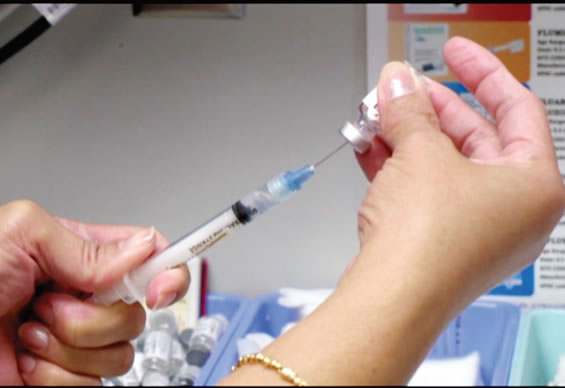The Federal Government is collaborating with Vaccine Alliance, Gavi, to prepare emergency vaccine donations in anticipation of potential shortages during an anticipated increase in cholera outbreaks nationwide.
Dr. Sania Nishtar, CEO of Gavi, expressed concerns about the cholera outbreak in Nigeria and announced readiness to assist the country in its response via a post on her Twitter handle @SaniaNishtar on Thursday.
She tweeted, “Deeply concerned about the ongoing #cholera outbreak in Nigeria. @Gavi and partners are closely monitoring the cholera outbreak, and stand ready to support the government to quickly respond, including to request emergency vaccine doses where needed.
“The global cholera stockpile, which is funded by Gavi, is currently fully replenished and ready to help contain outbreaks and protect those at highest risk.”
On Monday, the Nigeria Centre for Disease Control and Prevention (NCDC) announced the activation of its Emergency Operation Centre (EOC) to address the severity of the situation in the country.
Dr. Jide Idris, Director General of the NCDC, emphasized that the EOC would function as the central hub for coordinating the national response. Its responsibilities include providing assistance to affected states, facilitating swift communication, analyzing data, and supporting decision-making processes.
“It will ensure efficient deployment of needed resources, strengthen surveillance and diagnostic capacity and capabilities, enhance case management, training and intensify public awareness and community engagement activities,” Idris started.
He noted that experts who conducted the risk assessment last week placed Nigeria at high risk of increased cholera transmission and impact.
The Coordinating Minister of Health and Social Welfare, Prof Muhammad Ali Pate, has called for a multi-sectorial approach to forestall outbreaks of infectious diseases like Cholera, Typhoid Fever and Tuberculosis.
He said the approach should not only be biomedical which is curative, noting that many diseases are socially determined, hence, the right public policies must be put in place to provide social safety nets for vulnerable and poor people.
“There are many diseases that are socially determined; they are diseases of largely the population that are vulnerable and poor who live in inadequate housing, with low sanitation, who don’t have enough food, who are malnourished or whose occupation exposes them to certain disease conditions,” the minister said on Channels Television’s The Morning Brief show on Wednesday.
“So, to address population health, there is the biomedical which are certain diseases that we handle but there are some that go beyond that, and are multi-sectorial in terms of the determinant of why those diseases occur and how to respond to them.
“At the end of the day, we need to grow our economy, we need to translate that growth into incomes for households, we need to also build infrastructure; the base for the urbanisation that we are seeing so that people will have good housing, good nutrition, safe spaces, proper mental health, in addition to access to health facilities they can afford to get proper mental services.
“So, health is one thing that is not just a biomedical issue; there is health in almost all public policies, whether it is on housing, transportation, agriculture, environment, youths, even the gender dimension of it to ensure the women are not left behind, and there are vulnerabilities that will have to be addressed through social protection mechanism to ensure that there are safety nets for those who are left behind.
“It’s a whole of government and whole of society efforts that is necessary to improve the health and wellbeing of any population.”


